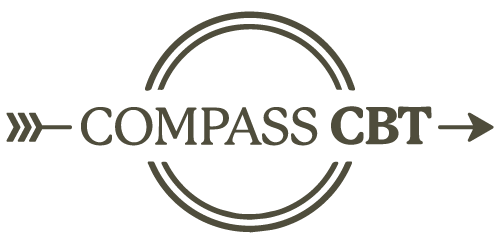Find Food Freedom by Divesting from Diet Culture
What is Diet Culture?
Diet culture is the set of societal expectations and beliefs that value thinness above all else. Diet culture is ubiquitous. It's the air we breathe, and it’s toxic.
What are the Dangers of Diet Culture?
As a clinical psychologist who works with people who struggle with disordered eating, eating disorders, and body image, I am painfully aware of the harm that stems from diet culture. I have seen many people put their lives on hold until they lose weight. They skip out on socializing, dating, swimming, hobbies, or new experiences. Their relationships and ability to enjoy life suffer as a result.
Another harmful outcome of diet culture is weight stigma, which is negative attitudes, discrimination, and prejudice of people in larger bodies. Weight stigma has been shown to harm both physical and mental health and gets progressively worse for people on the larger end of the weight spectrum. Weight stigma can also look like systemic discrimination against people in larger bodies, such as not being able to shop in mainstream clothing stores, not being able to fit into standard airplane seats, and even getting denied life-saving medical procedures. Weight stigma impacts everyone but is especially harmful to those with other marginalized identities.
What are the Dangers of Dieting?
Most people who are entrenched in diet culture at some point try to diet or change their eating in an attempt to lose weight, but dieting is ineffective at best and dangerous to mental and physical health at worst. Research shows that 95% - 98% of dieting attempts end up in weight regain within 2-5 years and that one-third of people who engage in diet behaviors go on to develop full-blown eating disorders. Eating disorders are occurring at younger and younger ages and are some of the deadliest mental health disorders.
How to Divest from Toxic Diet Culture
The most helpful way to remove the harmful effects of diet culture would be to change the culture itself - it's a systemic issue at its core.
On an individual level, divesting from toxic diet culture starts with learning more about the racist and sexist origins of diet culture and more helpful approaches such as Health at Every Size® (HAES) and Intuitive Eating. I recommend reading anti-diet books and listening to anti-diet podcasts. Unfollow or mute social media accounts that make you feel bad about yourself and fill your social media feed with body-positive and empowering messages. I also strongly recommend getting rid of your scale because it doesn't deserve to have power over your self-esteem and self-worth. Practicing self-compassion is also very helpful because moving away from diet culture is difficult and requires a lot of courage. I also really encourage anyone who is struggling with their relationship with food or body image to reach out for support from a HAES-aligned therapist and/or dietitian. You deserve to find food freedom and reclaim your life from diet culture, and you deserve support along the way.
Therapy at Compass CBT Can Help
If you are struggling with food or body image, it can be helpful to speak with a HAES-aligned clinical psychologist to get individualized support.
Therapy at Compass CBT can help you divest from diet culture so you can make peace with food and become more embodied and present in your life.


